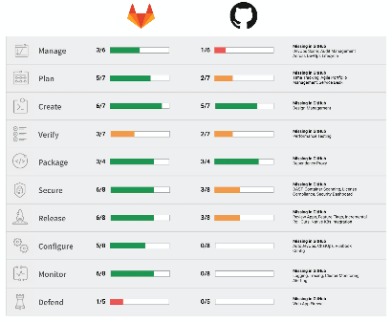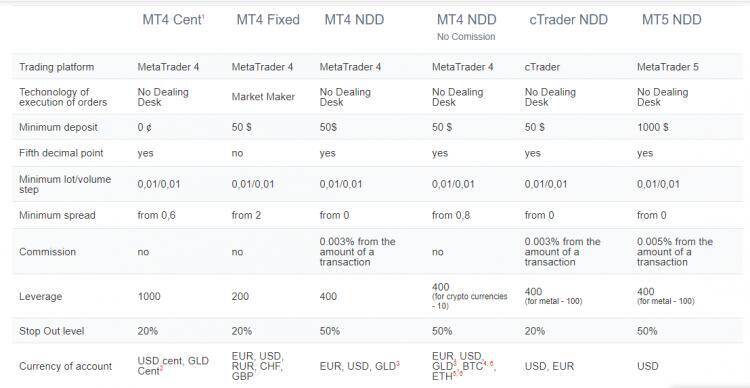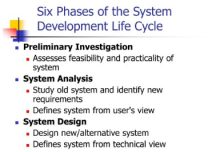Contents:


Users who want to use Git without GitHub generally need a bit more technical knowledge and some familiarity with command line tools. GitHub is particularly wellknown among open-source projects because anyone can host a public code repository for free. Open source projects on GitHub can be sponsored by funders who can contribute to the individuals or associations supporting them based on their passion.
GitLab Ultimate will set you back $99 per user/month versus $21 per user/month for GitHub Enterprise. The next difference between all these platforms is the importing of repositories. For a repository management platform, it must be able to import repositories from another platform also.
In terms of out-of-the-box functionality and self-hosting, GitLab comes out on top. That said, you still have the option to host a private version of GitLab on your virtual machines. While this means you can’t move your WordPress site directly to GitHub or GitLab, you canstill have version control in WordPress if you’ve got the proper setup. With Kinsta, you can pull directly from your Git repository using SSH. While the screenshot above highlights GitHub, GitLab offers equally powerful code collaboration and review tools.
Aqua Security Incorporates CIS Kubernetes Benchmarks Scanning … – InvestorsObserver
Aqua Security Incorporates CIS Kubernetes Benchmarks Scanning ….
Posted: Tue, 18 Apr 2023 14:18:08 GMT [source]
GitLab makes it easy to import your projects; as soon as you create a new project, you are given the option to import from any of the following sources. Bug Tracking –Both GitHub and GitLab offer an issue-tracking functionality that lets you simultaneously change the status and assignee of several issues. As a developer in 2023, you can’t afford to ignore tools like Git or major cloud repository providers like GitHub and GitLab. It also depends on what tools your teams already use and have mastered.
GitHub has a large and active community of developers contributing to open-source projects. GitLab offers GitLab Web IDE, a development environment that enables users to edit, review, and merge files. Web IDEGitHub offers GitHub Codespaces, a cloud-hosted development environment that lets you customize your project for use with GitHub. While you can set up a CI/CD workflow with GitHub, you need to work with a third-party CI tool like TravisCI or CircleCI. You don’t have the same platform of CI features that interact directly with your GitHub repository. There are also bug trackers available for either of these two platforms.
What is the difference between Gitlab and GitHub?
It is based on the tools offered by GitLab and is optimized for speed and agility. GitHub Flow is based on the idea of branching from the master branch and then merging back into it. It relies heavily on pull requests to manage code changes and reviews. It is based on the tools offered by GitHub and is optimized for collaboration. Another core difference is thatGitLaboffers you a complete software development solution.
That way, you’re set up to quickly deploy, and you can speedily reinstate your old version if something goes awry. When you click through from our site to a retailer and buy a product or service, we may earn affiliate commissions. This helps support our work, but does not affect what we cover or how, and it does not affect the price you pay. Neither ZDNET nor the author are compensated for these independent reviews. Indeed, we follow strict guidelines that ensure our editorial content is never influenced by advertisers. Security is our highest priority and is an integral part of how we operate.
SaaS Products We Use to Grow Our Web Hosting Company
It is written in Ruby and Go with a focus on extensibility and scalability. GitHub uses Git for distributed version control and provides tools for managing and merging code changes. It also offers features for team collaboration, communication, and project management. Moreover, it integrates with other tools and services such as IDEs, continuous integration tools, and project management platforms. GitHub and GitLab are source code management platforms for developers. They help with version control, enabling developers to track and manage their changes to source code.
The first is a free plan bundled with unlimited public and private repositories. It also offers 2,000 CI/CD minutes monthly community support, and 500MB worth of storage. GitHub is probably the best-known website for hosting software projects, but it’s certainly not the only one. GitLab has become a popular alternative solution for managing Git repositories. And although GitLab and GitHub offer the same basic functionality at a high level, there are critical differences between the two platforms. It’s crucial to understand the concept of Git before jumping on the difference between Github and Gitlab.

Likewise, paid plans for GitHub also focus on advanced collaboration tools , as well as security and compliance features. While both free plans offer unlimited public and private repositories, there’s a notable disparity in the paid plans’ price tags. That’s not to say that GitHub isn’t a good option for open source code, as it does offer instant access to the majority of these developers. GitHub also encourages them to contribute to open source each Friday, regularly expanding the number of public resources available.
What Are the Most Important Things to Know About GitLab and GitHub?
Certain https://traderoom.info/ aren’t available across all plans, so be sure to check the full plan comparison if there’s something specific you’re looking for. Before we dive into the nitty-gritty of the products, let’s talk more about Git. If you already have the basics of Git down, go ahead and skip to the next section to learn about the importance of version control. You can view the image sources below the prices to see the specifics of each plan and what they have to offer. In terms of cost per collaborator, however, GitHub is more affordable than its competitor .
Functional comparison of metabolic networks across species – Nature.com
Functional comparison of metabolic networks across species.
Posted: Mon, 27 Mar 2023 07:00:00 GMT [source]
And why are these concepts so important for businesses and developers to understand? These are important concepts to understand when you’re trying to create a more refined and collaborative development process. Mercurial is dedicated to speed and efficiency with a sane user interface. Mercurial’s implementation and data structures are designed to be fast. You can generate diffs between revisions, or jump back in time within seconds.
What is GITLAB?
Developers worldwide can interact and contribute to one another’s code, modify or improve it, making GitHub a networking site for web professionals. The process of interaction and contribution is also called social coding. The following similarities and differences are going to be based on various functionalities across the platform.
- Git gives you the liberty to work on various branch versions at once.
- However, you will have to work with third-party continuous integration tools when you set up work with Github.
- Another reason why many prefer GitHub over GitLab is that the former is a more stable platform.
- Both platforms include built-in collaboration and code review tools.
- Software development organizations and developers use these tools to collaborate on projects and ensure that every source code is reviewed and monitored carefully.
Over 500 project management apps and integrations are also available on the GitHub marketplace. The version control system and Git are at the core of what these tools have to offer, but these days they’ve become merely the foundations of a complete service. GitHub is one of the original cloud-based Git platforms that lets developers host and monitor their code changes. What sets it apart from traditional version control is that you can work on different branch versions of the software and manage them all simultaneously. On the other hand, GitHub has a massive community of developers that gives you access to detailed community support. This makes it easier to get help on common everyday problems regarding installations, reporting, and readme—and even more complex issues.
difference between gitlab and github is an open-source solution that allows you to host your applications on the web. The company offers a range of features that make it easier for developers to work together and share code with others. GitLab, on the other hand, is a paid platform that offers many more features than GitHub. For example, it allows you to create private repositories that only other users in your company can see . GitLab is an open-source project with many features that make it useful for personal and professional use.
Build, test, debug, and deploy your code in the cloud while allowing your contributors to alert you to changes they’ve made and pushed to a repository. While GitHub is still the default choice for new developers, that’s slowly changing as GitLab develops into a specialized platform with unique features and benefits. GitLab itself is open source software, and the self-hosted version is free for anyone to use.
The source code is a repository of invaluable knowledge and structure, and version control protects it accordingly. GitLab offers git repository management, code reviews, issue tracking, activity feeds and wikis. Enterprises install GitLab on-premise and connect it with LDAP and Active Directory servers for secure authentication and authorization. A single GitLab server can handle more than 25,000 users but it is also possible to create a high availability setup with multiple active servers. At DeployPlace we use self-hosted GitLab, we have chosen GitLab as most of us are familiar with it.
GitHub is more popular with developers and open-source projects, while GitLab is favored by enterprises. This platform offers a place where new programmers can develop their skills and seek advice from seasoned professionals. They can also examine publicly available code to learn new techniques. An open-source model also allows developers to outsource bug searching and quality control. Although it started as a repository platform, the company has expanded its abilities to support software development and deployment.
In the GitLab workflow, you create multiple stable branches beyond the master, usually at least production and pre-production. That means a multiple-step testing process where a single code review upon the merge request isn’t enough. They also limit access to advanced management, security, and compliance features in their free options. A whopping 87.2% of surveyed developers rely on Git for version control, collaboration, and smoother deployment. That may be enough for you if you’re a solo programmer or have a small team. GitLab Web IDE is a development environment that enables users to edit, review and merge files.
Using separate machines will give you different operating systems and tools, such as Docker and Kubernetes, on each device. Based on the price, syntax, features, and extensibility, we recommend choosing GitHub Actions. Over 100 million developers and 80% of the Fortune 100 use GitHub. GitLab offers Merge Request, Code Controls, Code Quality Reports, and Analytics. Use the clipboard icon to copy the commands, and paste them into your preferred command-line interface. Your repository will appear on GitHub for you to start making changes.
It’s not just a version control system for your software’s source code. GitLab and GitHub share several similarities because they are both Git-based platforms. Developers can use either software package to empower version control for their latest projects.
Additionally, GitHub has a wider range of features that make it better suited for larger code projects. Task management – BitBucket also features task management functionality, which allows developers to manage their tasks in a more organized way. This makes it easier to track progress and stay on track with your deadlines. GitLab Flow – GitLab Flow is a Continuous Integration tool that helps developers automate the process of building, testing, and deploying their code. This makes it easy for them to keep their code updated and running smoothly 24/7. Github Pull Requests – This is a great way to get feedback on your code changes from other developers.